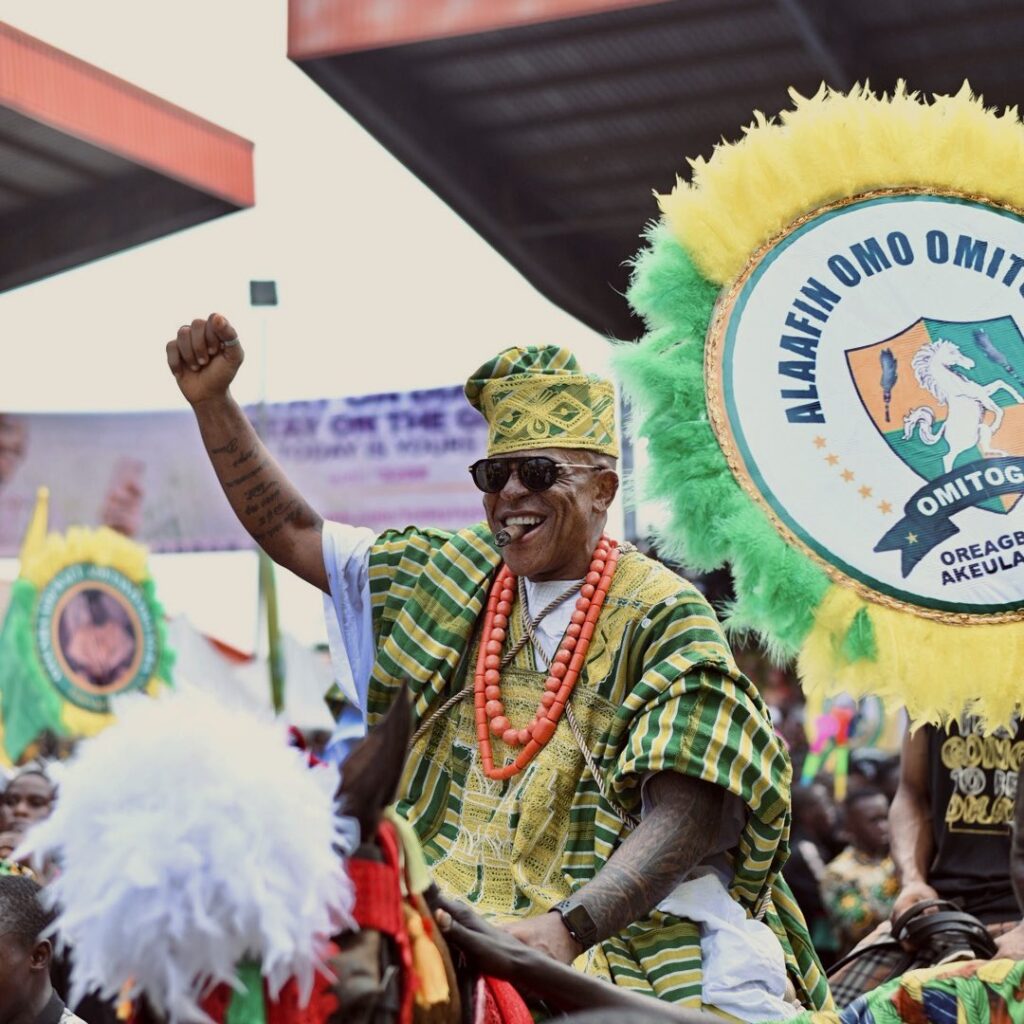
The Nigerian extractive sector has been troubled by activities of illegal miners for a very long time, leading to loss of unimaginable revenues accruable to the Federal Government. To stem this tide, the Minister of Solid Minerals Development, Dele Alake, unveiled a 2,200-strong Mines Marshal from the personnel of the Nigerian Security and Civil Defence Corps (NSCDC) to check the menace. ROTIMI AGBOLUAJE writes that though setting up the outfit is noble and constitutional, effective enforcement requires collective effort.
One of the ills plaguing the Nigerian State is the pervasive insecurity. The security challenge is taking tolls on virtually all sectors of the economy and therefore, taking a shine off any achievement of the government. One major sector bedeviled by this insecurity is the mining industry.
Perpetrated by illegal miners, the economic sabotage is so ingrained in the sector that the country is losing a humongous amount of revenue to the saboteurs. Needless to say, the activities of illegal miners are detrimental to the economy on many fronts.
Accentuating this is the fact that despite the country’s endowment with numerous natural minerals and deposits in its nooks and crannies, Nigeria has not been able to optimise the benefits of these God-given assets. Rather than reaping the benefits as being done by some global mining powerhouses like Canada, China, Australia, South Africa, Brazil and others, the activities of saboteurs and illegal miners are robbing the country of huge revenue.
This nefarious act has raised concerns among many organisations at various times. For instance, the Speaker of the Economic Community of West African States (ECOWAS) Parliament, Mohamed Tunis, recently disclosed that Nigeria loses 91 per cent of its revenue from the mining sector to illegal miners. Again, another recent report by Nigeria Extractive Industry Transparent Initiatives (NEITI) estimated that Nigeria loses about $9 billion yearly to illegal mining and smuggling of gold.
In fact, the increased prevalence of illegal mining and other criminal activities affecting host communities necessitated the signing of Executive Order banning illegal mining by some governors. Yet the challenge remains intractable and unabated.
Determined to tackle the monster, on March 22, 2024, the Minister of Solid Minerals Development, Dele Alake, unveiled a 2,200-strong Mines Marshal. The Marshals were drawn from the Nigeria Security and Civil Defense Corps (NSCDC). The mandate of the new operatives is to stem theft and other nefarious activities around the nation’s mineral resources so that the country can reap maximum benefits from its God-given resources. They also have the mandate to smoke out illegal miners and all those who flout the nation’s mining laws.
This followed the efforts of the presidential inter-ministerial committee on securing natural resources. This first layer of new security architecture to secure the mining environment, has a command structure spread across the 36 states and the Federal Capital Territory (FCT). The new Mines Marshals are led by a Commander, Chief Superintendent of Corps, Attah Onoja. He will have their command and control domiciled in the Ministry of Solid Minerals Development (MSMD), with initial 60 operatives deployed in each state and the FCT.
After the launch, a litany of nagging questions and issues has been thrown up by some Nigerians. Some are expressing reservations on the capacity of the new body to handle the task, considering the antecedents of the government, while the legality and constitutionality of raising a group within the paramilitary organisation is an issue for others. This is because the action, they argued, might be incompatible with the Nigeria Security and Civil Defence Corps Act (2007) and the 1999 Constitution (as altered). That is the reason some believe that a conflict may occur between the Governors and the Minister, as the Land Use Act of 1978 vests the control of land on the Governors, if not properly managed.
A law teacher, Prof. Olu Ojedokun, said if the marshals stray into law enforcement, constabulary duties and policing, it could be argued that they are encroaching on the role of the Nigerian Police as enshrined in Section 214 of the 1999 Constitution.
Ojedokun said: “In most parts of the world, it is the police that carry out these duties. It appears that a constitutional amendment is required to move mining and policing to the Concurrent Legislative List. This will ensure effective policing of resources. The action of Alake will not move the needle. They are all under authority. So, it is going to be difficult to advise them not to follow the instructions of the minister but they should seek an amendment of the law so that they don’t operate illegally.”
For another law scholar, Dr Aderonke Adegbite, it is only the National Assembly, and the Federal Government that can make laws and create outfits in charge of national security.
However, a senior lecturer at the Faculty of Law, Lead City University, Ibadan Dr Dominic Akabuiro, said the minister’s action was in order.
Akabuiro, an energy consultant quoted relevant sections of the 1999 Constitution, Nigerian Minerals and Mining Act, 2007; the Exclusive Economic Zone Act 1978, the Nigeria Security and Civil Defence Corps (NSCDC Act 2007), and even the Land Use Act, 1978 to support his argument.
“Section 44(3) of the 1999 Constitution states thus: ‘Notwithstanding the foregoing provisions of this section, the entire property in and control of all minerals, mineral oils and natural gas in, under or upon any land in Nigeria or in, under or upon the territorial waters and the Exclusive Economic Zone of Nigeria, shall vest in the Government of the federation and shall be managed in such manner as may be prescribed by the National Assembly’.
“The above provision, unequivocally vests the ownership right of minerals and natural resources exclusively on the Federal Government. This implies that it is the only authority that can make policies, laws and regulations or design programmes on exploration, mining, allocation of permit, and security measures to safeguard mining sites. Section 44(3) of the Constitution is in consonance with Section 1(1) of the Nigeria Minerals and Mining Act, 2007.
“Also, the Second Schedule, Part 1 of the 1999 Constitution, places Mines and Minerals, including oil fields, oil mining, geological surveys and natural gas under Exclusive Legislative List of the Constitution,” he argued.
He maintained that Section 1(1) of the Mining Act provides: ‘that the entire property in and control of all mineral resources in, under or upon any land in Nigeria, its contiguous continental shelf and all rivers, streams and watercourses throughout Nigeria, any area covered by its territorial waters or constituency and the Exclusive Economic Zone is and shall be vested in the government of the federation for and on behalf of the people of Nigeria’.
Citing Section 1(2) of the Act, Akabuiro explained that all lands in which minerals have been found in commercial quantities shall, from the commencement of the Act be acquired by the government of the federation in accordance with the provisions of the Land Use Act, 1978.
“In Section 146 of the Exclusive Economic Zone Act, the Minister can act under it to create officers of the Ministry to arrest illegal operators within the mining areas in Nigeria,” he maintained.
Similarly, a Senior Advocate of Nigeria, Chief Yomi Alliyu, said the amended Section 3 of the NSCDC Act 2007 empowers the Corps to “maintain 24 hours surveillance over infrastructure, sites and projects for the Federal, State and Local Governments.”
According to him, mining is in article 39 on the exclusive list of the 1999 Constitution. Therefore, mining sites are properties of the Federal Government, which the NSCDC are to maintain 24 hours surveillance and “prevent subversive activities” that could affect the economy of the nation.
His words: “One will be right to conclude, therefore, that the Minister was merely igniting one of the functions of NSCDC by assigning mining sites to its officers. Giving them a new name of Mining Marshalls is mere surplusage and descriptive of duty than the creation of a new entity as one might be tempted to think. NSCDC Act, 2007, also empowers the Corps to “maintain an armed guard.”
“The minister, having the consent of the minister of Internal Affairs, is acting within the law and the Constitution of Nigeria,” he stressed.
Another lawyer, Mr Justice Akose, agreed that the minister’s action is constitutional as the marshals were drawn from a security outfit already established by an Act of the National Assembly.
On vesting ownership of land on Governor’s, their power to issue mining licences and suspend mining activities, Akose said: “The governor is the chief security officer of his state, but he does not have power to suspend mining activities. Only the president can do that. Only when miners are operating illegally, they cannot challenge a governor. For instance, Governor Seyi Makinde could not do anything when the Ibadan mining blast occurred because the miners said they had a licence from the Federal Government.”
Agreeing that mining is exclusively under the Federal Government while the land that holds the mines is under the supervision of the governor of the State, Mr Yomi Ogunlola, a lawyer, argued that activities that may endanger the State would naturally attract the interest of a governor. “If a miner kills a person in a State, who will prosecute him?” He asked rhetorically.
Also pleased with the action, the Head of Department of Geology, University of Ibadan, Prof. Gbenga Okunlola commended the initiative. Specifically, Okunlola maintained that there must be proper monitoring and clear terms on the extent of their power. “They must not become bribe takers, who are after pecuniary interests. We must monitor them for enforcement. Let us give them a trial,” he said.
Besides, an immigration scholar, Prof. Rasheed Olaniyi supported the action. He emphasised the need for collaboration between the new Marshals and other security agencies to achieve the desired result.
He said: “Mining Marshall should be highly empowered to counter the activities of illegal miners. It should be noted that illegal mining is also linked to banditry and so on. The new Marshall must collaborate with other security agencies and not operate in isolation.”
Therefore, to effectively check the activities of illegal miners, all hands must be on deck, which must involve all security outfits and patriotic citizens, not just the Mining Marshals alone.













